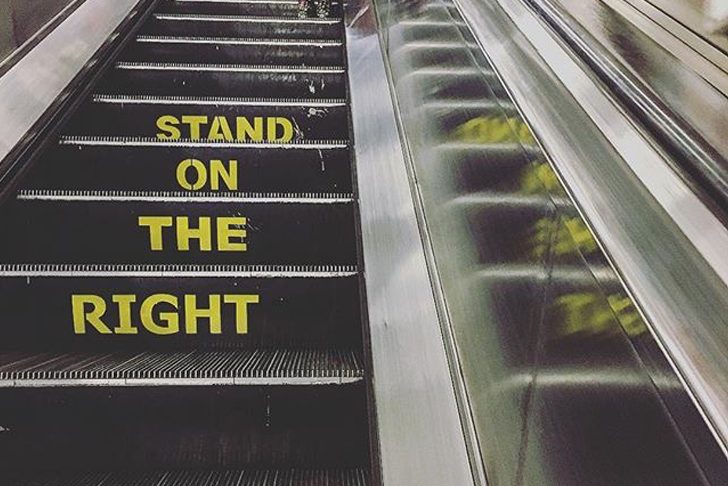
12 Things to Know about Germany
As you might know, I grew up in Germany. And although I have lived in the UK for over a decade now, Germany is where I spent most of my life. But the longer I live abroad, the more I stumble across little peculiars. Nothing major. After all, life in the UK and in Germany isn’t a million miles apart (language aside obviously) and you can adapt fairly quickly. But same as the Brits have their own ways of being, so have the Germans. So, if you are considering a trip to Germany anytime soon (Berlin for example), let me share with you 12 things to know about Germany. Some might be obvious, others not so much. But if you want to avoid sticking out like a sore thumb and being instantly recognised as a tourist, try and memorise at least a few of those things.
12 Things to know about Germany: Dosenpfand / Einwegpfand
If you live in the UK and shop in supermarkets, the concept of a deposit on re-usable bottles might be difficult enough to grasp. If you have your milk delivered to your door step in re-usable glass bottles, then a deposit on bottles might not be as alien to you.
But in Germany you have two types of deposit on bottles and cans. One is for re-usable bottles (usually glass bottles), that will be washed and re-used.
The other (a little more difficult to grasp) is on single use plastic bottles and cans. To avoid those bottles ending in landfill (or littering the side of the roads), a 25c deposit is charged for every single use plastic bottle or drinks can. Regardless of whether you buy that drink in a major supermarket or a small corner shop. To get your deposit back, you will have to hand back those bottles to the retailer (so seeing Germans carrying big bin bags full of empty bottles back to the supermarket is a common sight on a Saturday morning).
12 Things to know when travelling to Germany: Carry Cash
When it comes to credit card acceptance, Germany sometimes feels like a third world country. Whilst restaurants in Nordics are going completely cashless, a lot of smaller cafes and shops and even some restaurants will not accept credit cards in Germany. So, you should ensure that you always carry some cash.
As for shops, you can expect major supermarkets to accept debit cards and credit cards (although you might have problems if your only credit card is an American Express card). But smaller shops might have a 10 Euro minimum spend, below which they won’t accept card.
Oh, and contactless payment has only just been introduced to Germany and is only slowly catching on.
12 Things to know when visiting Germany: Everything is closed on Sunday
Shops are closed on Sundays and Bank Holidays. Period.
With the exception of some bakeries and petrol stations. And maybe some supermarkets at major train stations and airports.
12 Things to know about Germany: Restricted opening times
But it is not just Sunday and Bank Holidays that you might struggle with opening hours. Even during the week, opening times are restricted. No silly 24/7 service like we have in the UK or in the US. Depending on area in Germany, shops will close latest by 8pm (or 10pm maximum in a few areas). And that is the same for grocery shops as it is for other retail shops.
12 Things to know for your first trip to Germany: Be efficient
When you go to the shops, be prepared to be quick. Tills are efficient and you are expected to keep up with their speed. So, don’t hang around, pack your shopping bags. See it as a game, who is quicker. You or the cashier?
12 Things to know about Germany: ‘Halb Zwei’ means half past one.
‘Halb Zwei’ might literally translate to half two. But it is not the same as half (past) two. It means half of the second hour. So, half past one. Confusing? Well I can top it. What time do you think ‘Viertel Zwei’ (‘Quarter two’ in English) might be? Exactly, 1.15. Well done (or not) – don’t despair. Even after 40+ years in Germany, my dad still occasionally struggles with this one.
12 Things to know about Germany: No Jaywalking. Ever
As tempting as it might be, jaywalking is frowned upon in Germany. So even if the road seems clear, if you see the red man at the traffic light, you stop and wait. Especially if kids are nearby. You don’t just look left and right and walk (guilty as charged here myself). After years of living in London, I am quick to just cross the road and see pedestrian traffic lights as recommendation rather than a rule. But don’t be me. Be a decent human being.
12 Things to know about Germany: Service is included
Service is usually included in your restaurant bill. But a tip of 10 – 15% is kind of expected in restaurants and cafes. Provided you were happy with the service. If you weren’t, feel free to reduce the tip (or omit altogether if it was really bad). Talking of food, how about trying a selection of traditional German foods, that aren’t ‘just’ Bratwurst and Sauerkraut?
12 Things to know about Germany: No free tap water in restaurants
This is one I struggle with in German restaurants nowadays. I am so used to ordering free tap water when eating out in the UK or US. I don’t always fancy an alcoholic drink with my meal, and I try to avoid fizzy drinks (plus I am intolerant to half of them anyways). So, tap water for me is the most convenient alternative.
But not in Germany. If you want some water, you’ll have to buy a glass or bottle. And chances are it will be fizzy.
12 Things to know about Germany: Not everyone speaks English
English might be widely spoken in Germany and it seems the common perception that every German understands English. But this is not entirely true. Not all areas in Germany actually learn English in school. Or at least not as their first foreign language. Some areas have French as a first foreign language (due to their proximity to the French border). And older people in East Germany are more likely to understand Russian than English.
12 Things to know when visiting Germany: Be formal
This is another one I struggle with more and more, the longer I live in the UK. The German language has two ways of addressing people. A formal way and an informal way. Whilst you would address your friends in an informal way, business language would demand formal addressing. Even if you have worked with colleagues or clients for years, you might still address them formally as Mr / Mrs Soandso rather than by their first name. And if you eventually step into that mine field of offering your first name, be advised that it should really be the older person (or more senior position wise) offering the first name to the younger or more junior.
12 Things to know about Germany: No Speed Limit on the Autobahn
Yes, you heard right. In theory you can do 200+ km/h on German Autobahns (motorways). But that doesn’t mean we all have to unleash our inner Lewis Hamilton. There might not be a general speed limit. But a lot of sections do have a speed limit regardless. And as for those bits that are truly unlimited? Well, drive as quickly as you want. But ensure you are comfortable and know what you are doing. If you are not used to high speed, I would recommend keeping it civil. The recommended cruising speed in Germany is around 130km/h (so 80 m/h).
There you have it. 12 things you really should be aware about Germany. Hand on heart. How many of those did you know already? All? None?
Obviously, there are many more peculiars about Germany. Or even just about one specific area of Germany. After all, it is a huge country and people in Munich are completely different to people in Hamburg (one might even argue that they hardly speak the same language). But with these 12 things to know about Germany, you should hopefully be able to enjoy a trip to Germany without screaming tourist from ten miles away.


